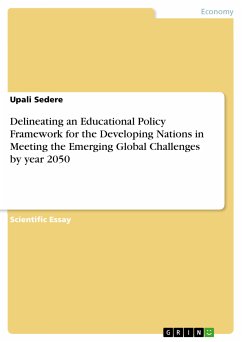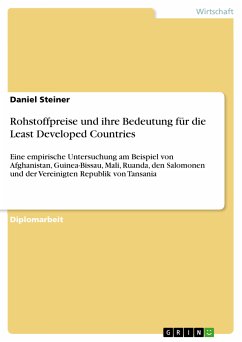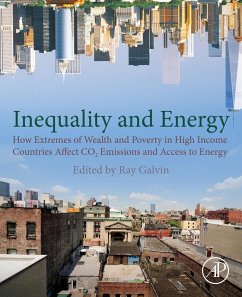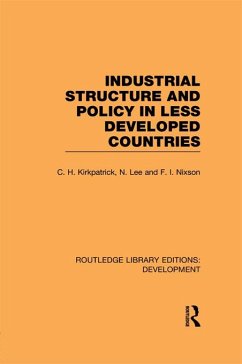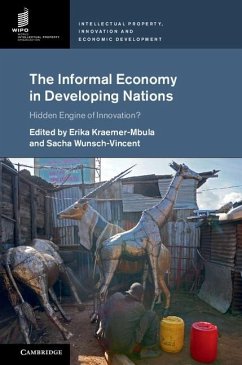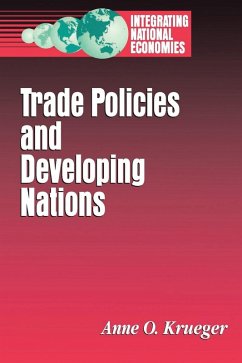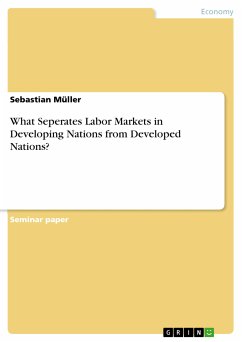
What Seperates Labor Markets in Developing Nations from Developed Nations? (eBook, ePUB)

PAYBACK Punkte
0 °P sammeln!
Seminar paper from the year 2003 in the subject Economics - Other, grade: 2 (B), University of Freiburg (Economics), course: Job Markets in Developing Nations, language: English, abstract: The majority of the world's population lives and works in developing countries. This paper examines what might be the difference between labor markets in developing and developed countries. The paper first briefly looks at various definitions of the term "developing country". It then starts with the topic of migration, whose causes and consequences will be described. A look at labor legislation follows with ...
Seminar paper from the year 2003 in the subject Economics - Other, grade: 2 (B), University of Freiburg (Economics), course: Job Markets in Developing Nations, language: English, abstract: The majority of the world's population lives and works in developing countries. This paper examines what might be the difference between labor markets in developing and developed countries. The paper first briefly looks at various definitions of the term "developing country". It then starts with the topic of migration, whose causes and consequences will be described. A look at labor legislation follows with a focus on unemployment protection and insurance as well as minimum wages. Then, the paper examines how wages are determined when labor is organized and how centralized the wage setting process takes place. The key difference that might be most intuitive of all is next. Dualistic markets, the concept of formal and informal sectors, are analyzed. The paper ends with various social aspects, such as the role of women, child labor as well as health and nutrition, that separate labor markets in developing nations from developing countries.
Dieser Download kann aus rechtlichen Gründen nur mit Rechnungsadresse in A, B, BG, CY, CZ, D, DK, EW, E, FIN, F, GR, HR, H, IRL, I, LT, L, LR, M, NL, PL, P, R, S, SLO, SK ausgeliefert werden.





